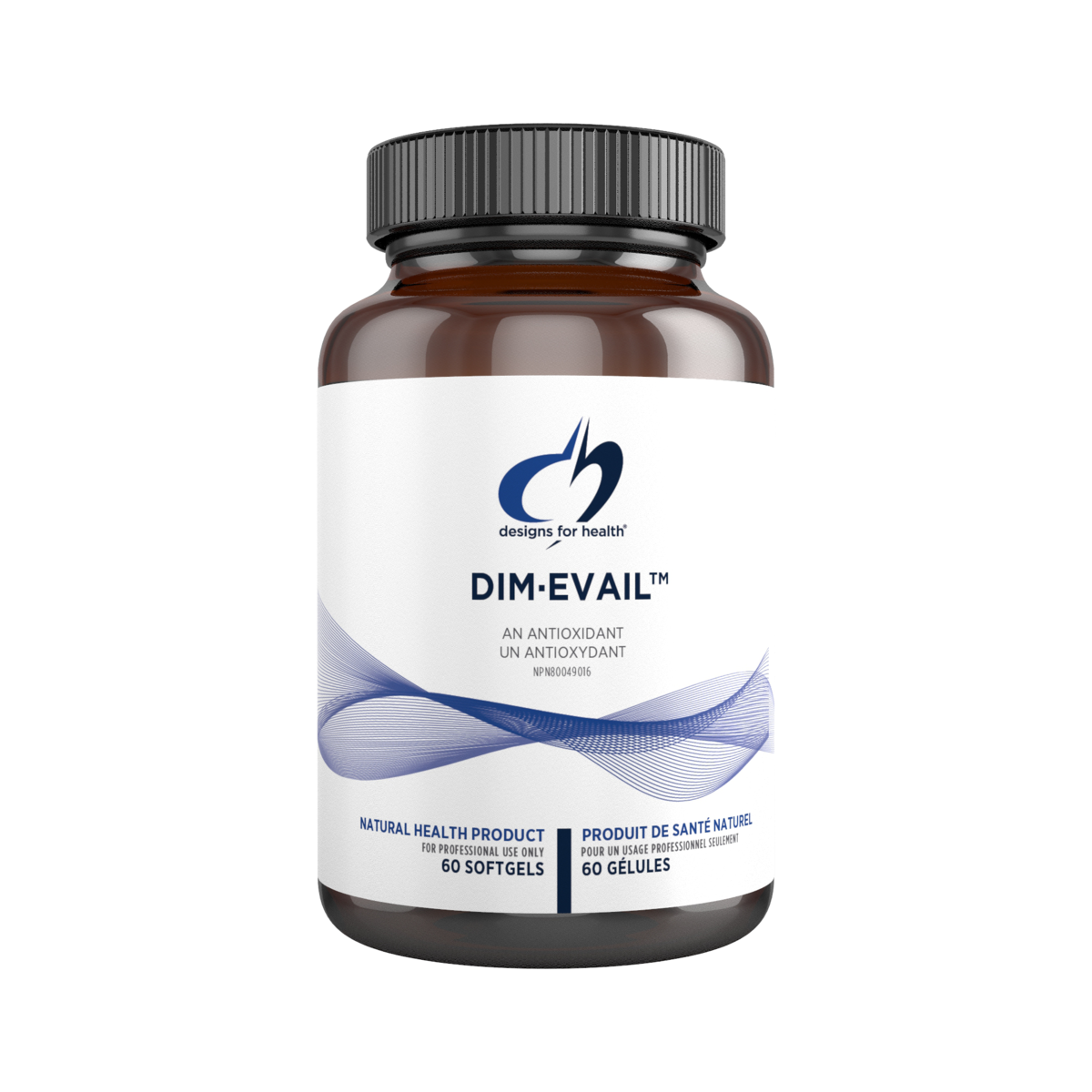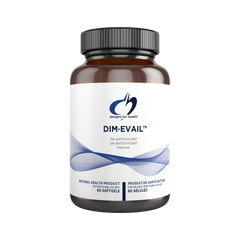



Description
x- Highly bioavailable diindolylmethane.
Plant indoles, also called glucosinolates and mainly found in cruciferous vegetables, offer multiple benefits for human health. These vegetables are well known for their impact on reducing the risk of cancer and many chronic diseases. Two of the main indoles derived from cruciferous vegetables are I3C (Indole-3-Carbinol) and DIM (Diindolylmethane). Consequently, DIM is not naturally present in these plants since it is released following an enzymatic process during the grinding of broccoli, cauliflower, cabbage or Brussels sprouts or during human digestion. Stomach acid, or HCl, can also promote the coupling of two indole-3-carbinol molecules to form diindolylmethane. Lack of HCl will therefore hinder an individual's ability to make DIM from I3C2.
Essentially, DIM is two I3C molecules combined. Encapsulated I3C does not store very well, however, because it is sensitive to light, heat and humidity. Additionally, it is irritating to the stomach and research indicates possible side effects at doses above 300 mg per day such as dizziness and unsteady gait potentially caused by nervous system toxicity. A study shows that 90% of the I3C consumed orally is transformed into other compounds, which could possibly be the cause of these side effects. Indeed, ICZ, or indolocarbazole, is one of these compounds known to cause DNA damage4. Studies on DIM demonstrate no toxicity when administered at three times the dose in humans.
Due to its crystal structure, absorption of DIM is minimal when administered orally. For this reason, DIM-Evail is made using Designs for Health's all-new all-natural Evail formulation which is proven to improve the absorption of DIM. A blend of MCT oil, non-soy lecithin and vitamin E are used without the use of potentially harmful surfactants.
Posologie
xInfos nutritionnelles
x- Choosing a selection results in a full page refresh.

